Innovative Waste Management around the World
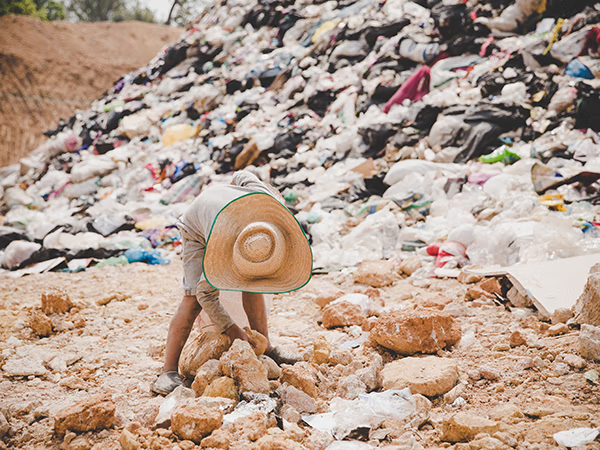

From Switzerland to Indonesia
Waste is one of the defining challenges of our time. As urban populations grow and consumption increases, the question of what happens to all our rubbish becomes critical—not just for environmental health, but also for social and economic well-being. While some countries still struggle with overflowing landfills, others have developed creative, efficient, and sometimes surprising approaches to managing waste.
Let’s take a closer look at four countries—Switzerland, Italy, Brazil, and Indonesia—that demonstrate how different strategies, from high-tech systems to community-based initiatives, can turn rubbish into valuable resources.
Switzerland: pay-as-you-throw” scheme
Switzerland is known for its punctual trains, clean streets, and efficient governance—and its waste management system is no exception. The country has one of the most advanced systems in the world, built on a combination of strict rules and active community participation.
One of the central features is the “pay-as-you-throw” scheme. Instead of a flat waste collection fee, households are charged based on the amount of rubbish they produce. Special taxed rubbish bags or stickers must be purchased, and the more you throw away, the more you pay. This system creates a strong incentive for people to reduce waste and recycle as much as possible.
Recycling is not just encouraged—it’s mandatory. Failure to separate recyclables such as glass, paper, or aluminum can result in fines, and it’s not uncommon for inspectors to check bags for compliance. To support citizens, Switzerland provides an extensive network of recycling points and eco-centers where specialized waste—such as electronics, batteries, or hazardous household items—can be dropped off.
Importantly, landfills are not an option. Since the early 2000s, Switzerland banned the disposal of untreated waste in landfills. Instead, non-recyclable rubbish is incinerated in advanced waste-to-energy plants, where it is transformed into electricity and heat for homes. The result: a system where every citizen participates, recycling rates remain impressively high, and almost no waste is left unused.
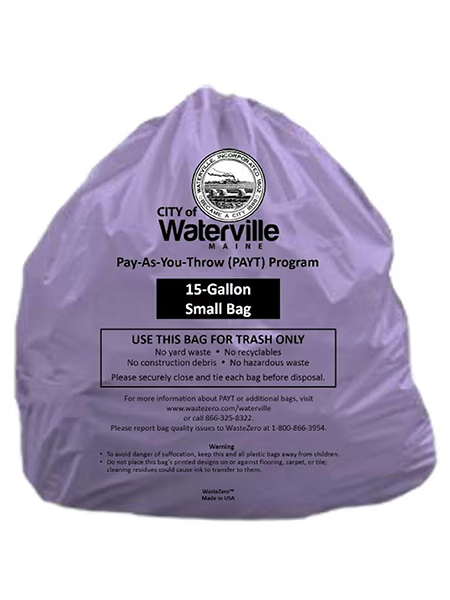
Italy: Recycling for a Free Ride
Rome, Italy’s bustling capital, has introduced a clever and highly visible way to motivate recycling. In a city famous for its ancient ruins and tourist crowds, the local government launched a program where plastic bottles can be exchanged for metro tickets.
Special machines, installed in metro stations, accept empty bottles and issue credits that can be redeemed for free public transport rides. For every 30 bottles inserted, a passenger earns a free ticket. While this might sound like a tourist gimmick, it has been surprisingly successful in encouraging both locals and visitors to keep plastic out of the streets and in the recycling stream.
The appeal lies in its simplicity: recycling becomes instantly rewarding. Tourists love the novelty of “paying for travel with plastic,” while residents see it as a way to save money on daily commutes. This initiative not only diverts significant amounts of plastic from the waste stream but also creates a visible link between sustainable behavior and tangible benefits.
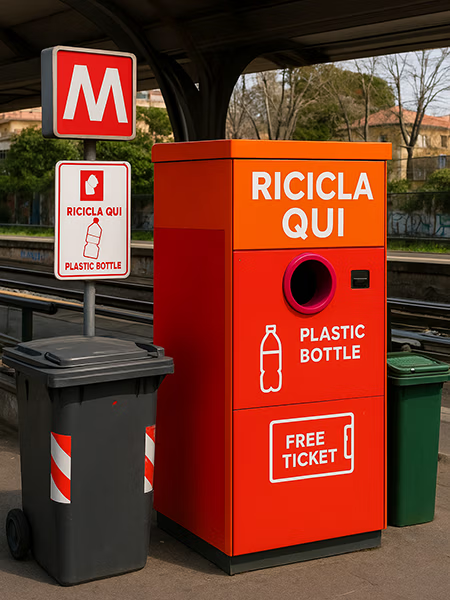
Brazil (Curitiba): Social Benefits Through Recycling
In Brazil, the city of Curitiba stands out as a pioneer in linking waste management with social progress. Often cited as one of the greenest cities in Latin America, Curitiba has implemented recycling programs that achieve both environmental and social goals.
The city boasts an impressive 70% recycling rate, supported by programs that create jobs for low-income residents. Many of the recycling centers employ people from disadvantaged backgrounds, offering them steady income and valuable work experience.
One particularly innovative initiative allows residents to bring recyclable materials to collection centers in exchange for tokens redeemable for food or public transport tickets. This program helps families with limited income while also ensuring that recyclables are collected efficiently across the city.
Curitiba has also embraced creative reuse projects. For example, old buses that once served the city’s famous rapid-transit system have been converted into mobile schools and libraries. This blend of recycling, social inclusion, and creativity has turned Curitiba into a model for sustainable urban living.
-%20Social%20Benefits%20Through%20Recycling.avif)
Indonesia: Waste as Currency
In Indonesia, waste management faces unique challenges. With its vast archipelago and rapidly growing population, conventional waste collection systems are often difficult to implement consistently. However, many communities have developed grassroots solutions that combine environmental care with direct financial incentives.
One of the most successful models is the “waste bank” system. In these community-run initiatives, residents can deposit recyclable materials—such as plastics, paper, and metals—just as they would deposit money in a bank. Instead of cash, participants earn credits that can be exchanged for goods, services, or even school tuition. Some waste banks also provide direct payment, making recycling a small but meaningful source of income for households.
These waste banks are often supported by NGOs and local authorities, who provide training and infrastructure to make waste separation easier. Beyond financial incentives, the system also strengthens community ties. Neighbors work together to keep their environment clean, children learn the value of recycling, and local economies benefit from reduced waste and increased reuse.
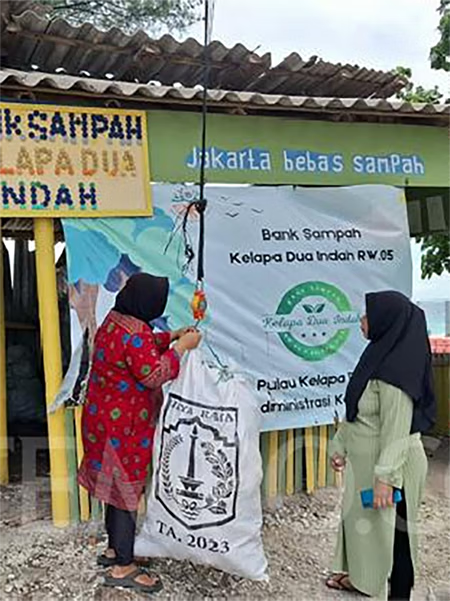
A Shared Lesson
From Switzerland’s high-tech precision to Indonesia’s grassroots creativity, these examples highlight a key lesson: waste is not just a problem, it’s an opportunity. Whether through financial incentives, strict regulations, or community-based solutions, countries are finding ways to turn rubbish into energy, transport, jobs, and even education.
As the world continues to grapple with the environmental impact of waste, these diverse approaches show that there is no single solution—but many inspiring paths that lead toward a cleaner and more sustainable future.
Get A Free Quote
St Kilda
VIC 3182 - Australia
info@melbournerubbishremovalservice.com.auPh.: 0479 197 774


Helpful infos for your waste management
Check out all our articles about waste management, recycling,regulations and more.
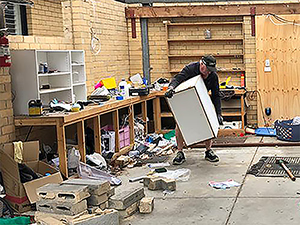
Furniture Removal Melbourne
Getting rid of unwanted furniture in Melbourne doesn’t have to be stressful or time-consuming. Our professional furniture removal services make it easy, fast, and environmentally responsible.
Call us for your old furniture removal!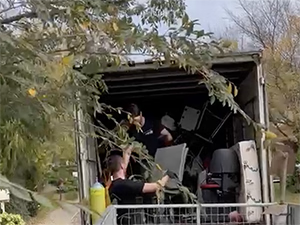
Estate Clearance Melbourne
Whether you are a family member, or a property owner, the process of home clearance often involves sorting through decades of belongings, making important decisions, and preparing a property for sale, rental, or handover. Professional estate clearance Melbourne services are designed to ease this burden, offering respectful, efficient, and environmentally responsible solutions.
Let us take care of your concerns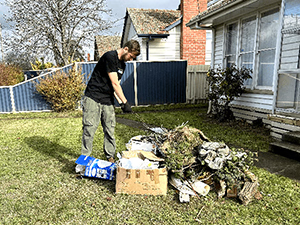
Coburg Rubbish Removal Story
Sometimes we get a call for a cleanup where the job turns into a much larger story then we ever expected.
Rubbish Removal in Coburg
Best Rated Rubbish Removal Service Awards
We’re thrilled to share some exciting news: Melbourne Rubbish Removal Service has been recognised as one of the Top 3 Rubbish Removal companies in both Geelong and Ballarat. This double award reflects the trust our community places in us every day.
About the AwardDo you want to read more about our work, check out our rubbish removal tips.
All Rubbish Removal Tips





